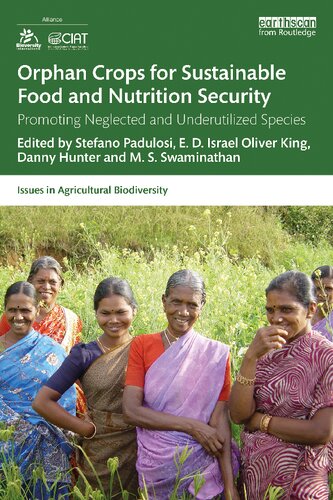

Most ebook files are in PDF format, so you can easily read them using various software such as Foxit Reader or directly on the Google Chrome browser.
Some ebook files are released by publishers in other formats such as .awz, .mobi, .epub, .fb2, etc. You may need to install specific software to read these formats on mobile/PC, such as Calibre.
Please read the tutorial at this link. https://ebooknice.com/page/post?id=faq
We offer FREE conversion to the popular formats you request; however, this may take some time. Therefore, right after payment, please email us, and we will try to provide the service as quickly as possible.
For some exceptional file formats or broken links (if any), please refrain from opening any disputes. Instead, email us first, and we will try to assist within a maximum of 6 hours.
EbookNice Team

Status:
Available5.0
5 reviewsOrphan Crops for Sustainable Food and Nutrition Security discusses the issues, challenges, needs and opportunities related to the promotion of orphan crops, known also as neglected and underutilized species (NUS).
The book is structured into six parts, covering the following themes: introduction to NUS, approaches, methods and tools for the use enhancement of NUS, integrated conservation and use of minor millets, nutritional and food security roles of minor millets, stakeholders and global champions, and, building an enabling environment. Presenting a number of case studies at the regional and country levels, the chapters cover different but highly interlinked aspects along the value chains, from acquisition and characterization of genetic diversity, cultivation and harvesting to value addition, marketing, consumption and policy for mainstreaming. Cross-cutting issues like gender, capacity building and empowerment of vulnerable groups are also addressed by authors. Representatives from communities, research for development agencies and the private sector also share their reflections on the needs for the use enhancement of NUS from their own perspectives.
This book will be of great interest to students and scholars of food security, sustainable agriculture, nutrition and health and development, as well as practitioners and policymakers involved in building more resilient food and production systems.